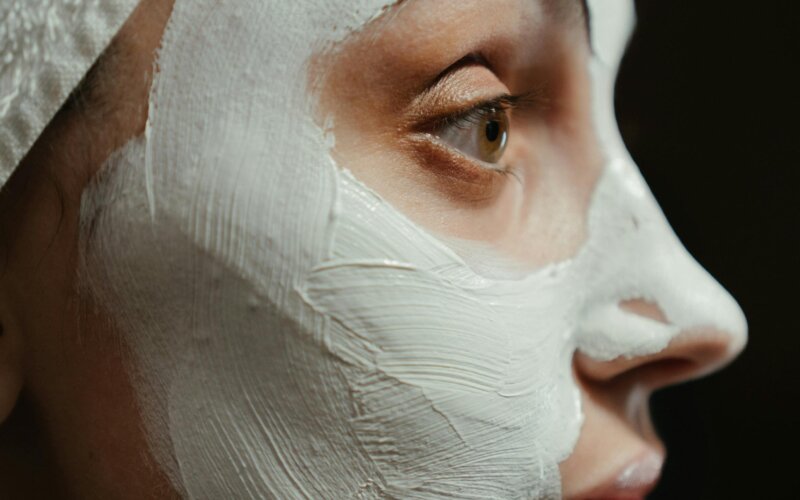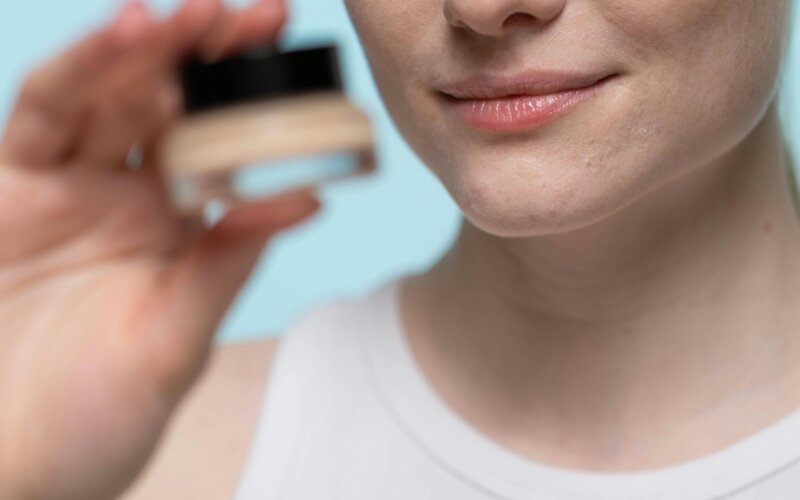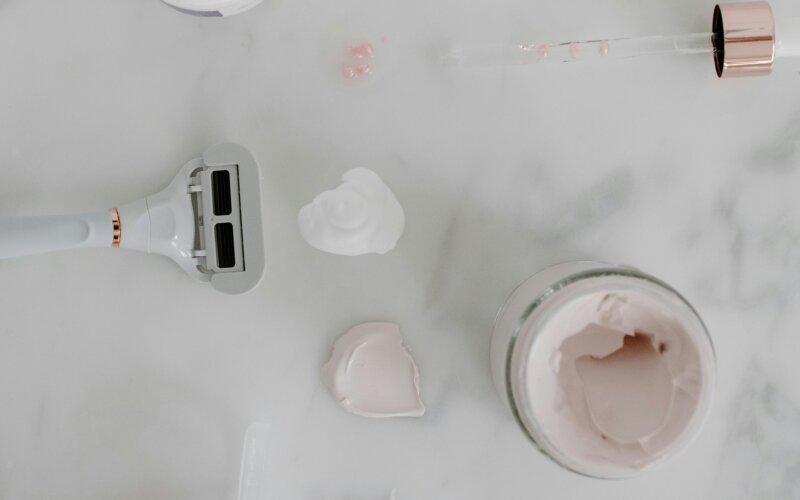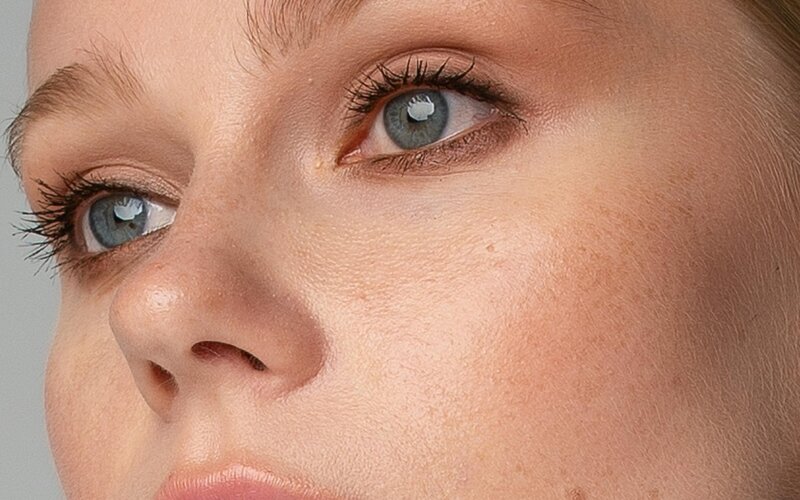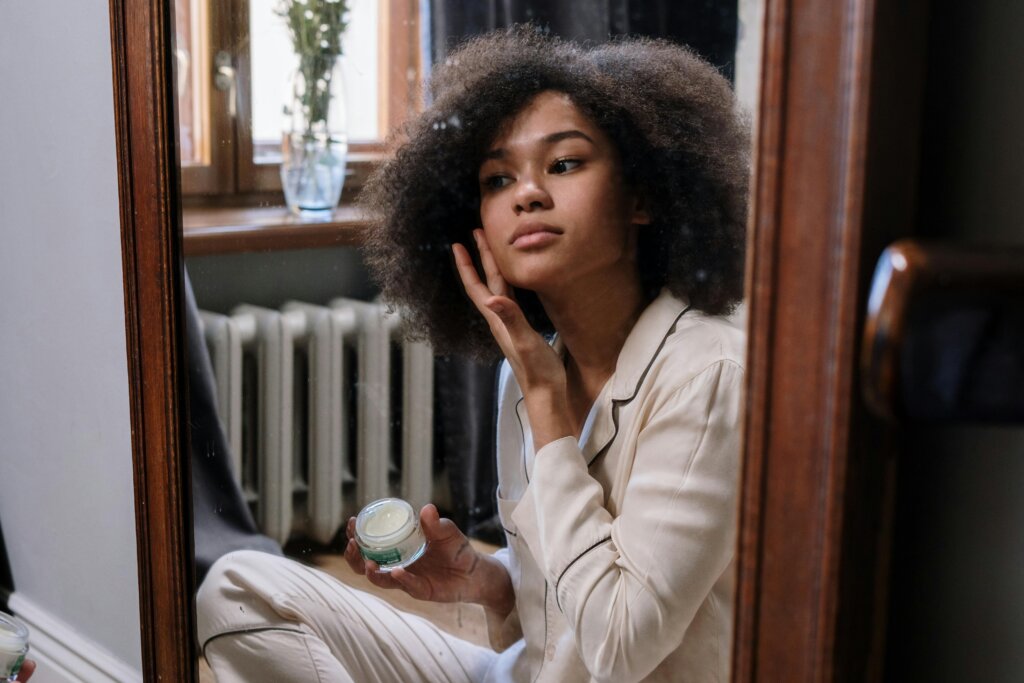
Growing up with the fetish of makeup and basic skincare from my mother’s vanity always excites me the most. From lip balms to blushes, using everything even when I was not allowed to use. This craze of looking prettiest continues till now. After choosing this profession of professional makeup artist (My Childhood dream) I came across so many clients with different skin type and skin concerns, always suggesting them to be mindful of what they are using on skin. In this overwhelming world of products vying for attention—each promising flawless skin, anti-aging miracles, or the secret to a luminous glow. You also don’t need the trending Korean Skincare Routine which includes 8-10 steps.
But amidst this sea of choices, a growing number of beauty enthusiasts are discovering “Less is more.” This shift is a pushback against overcomplicated routines and mass-produced products. Which leads to a rising preference for quality over quantity, simplicity over excess, and personalized skincare over one-size-fits-all solutions. In this article, we’ll explore why this approach is gaining ground, learning the importance of small-batch skincare, and the importance of mindfulness in the skincare industry.
#1. Beauty Unicorns vs. Indie Charmers
We’re living in a golden age of beauty, with new brands popping up every other day. Some of these brands explode into mainstream success, becoming beauty “unicorns” valued at billions. These beauty giants often have massive marketing budgets, high-profile influencers, and shelves overflowing with products in every drugstore or high-end department store. Think of brands like the ordinary, Lotus herbals, Mama Earth has achieved status with their distinct aesthetics and wide-ranging product offerings.
What sets these indie brands apart is their commitment to transparency and authenticity. They often source their ingredients from small, sustainable farms, and take pride in crafting products in limited batches to ensure freshness and efficacy. Indie charmers allow consumers to feel more connected to the product, knowing that someone with passion and expertise carefully formulated and packaged their moisturizer or serum. These brands cater to individuals who are seeking something different—something with a story that feels personal, rather than mass-produced.
Small-batch brands, such as Dot & Key, Foxtale, and D’you provide a sense of exclusivity and care that beauty unicorns simply can’t replicate. While unicorns cater to the masses, indie charmers thrive on niche appeal, drawing in those who prioritize quality over quantity.
#2. Storytelling That Sells
When it comes to skincare, consumers are no longer content with just buying products they want to connect with the story behind the brand. This is where small-batch skincare brands excel: they craft narratives that resonate with their audience on a deeper level.
Take D’you, for example. This indie brand doesn’t just sell products—it shares its journey, vulnerabilities, and experiences with its community. From sharing their challenges in sourcing sustainable ingredients, D’you creates a narrative that customers feel a part of. The result? A loyal customer base that isn’t just buying a product—they’re buying into a brand they feel connected to.
Storytelling in the beauty industry isn’t just about marketing—it’s about building trust and creating an emotional connection. When a brand can convey why they created a product, and the problem they’re solving, it adds layers of meaning that mass-produced skincare often lacks. Brands that communicate their values, struggles, and commitment to craftsmanship earn a loyal following that extends beyond a mere transaction.
In a world where we’re bombarded with thousands of products, the ones that tell the best stories stand out. Customers want to know the origins of their skincare who made it, why they made it, and how it fits into their personal self-care routine. This emphasis on storytelling turns skincare into more than just a commodity—it becomes an experience. And in this case, less really is more: fewer, more meaningful products with a story behind each one.
#3. The Perils of Sensitive Skin
For people with sensitive skin, the quest for the perfect skincare routine can feel like navigating a minefield. With so many products on the market, finding one that doesn’t trigger irritation, redness, or breakouts can be challenging. And it’s easy to fall into the trap of thinking that more products—or more expensive ones—will lead to better results.
But for those with sensitive skin, the “less is more” approach can be a game-changer. The more products you pile onto your skin, the higher the chance of a reaction. Layering serums, moisturizers, exfoliants, and treatments can overburden your skin’s natural barrier, leading to more problems than solutions.
This is where small-batch skincare brands can shine, particularly for sensitive skin types. These brands often focus on minimalist formulations, using fewer ingredients that are more natural, and eliminating common irritants like synthetic fragrances or harsh chemicals. Plus, the transparency that many indie brands offer—full ingredient lists, explanations of where their ingredients are sourced, and why they’re used—helps consumers make informed decisions about what they’re putting on their skin. Brands like Dot & Key, D’you prioritize sourcing fresh, organic ingredients and formulating them in a way that minimizes the risk of irritation while maximizing efficacy.
However, there are still risks. With smaller brands, there may be fewer clinical trials, so it’s essential to be diligent about patch-testing new products. Transparency is key, and the best brands are upfront about their formulations, allowing consumers to make confident choices.
#4. Why limited skincare Feels So Right
Brands are doing their work, marketing enough to get the customers. But it’s your choice to just go with the marketing gimmicks or using exactly what you need for your skin.
Many people mistakenly believe that using a wide range of skincare products is beneficial for their skin. However, this can backfire, as overloading the skin with too many ingredients often causes irritation and inflammation. It’s time to simplify your routine and focus on giving your skin only what it genuinely needs.
One of the most significant benefits of targeted skincare is to not get confused on what exactly you are applying. You are fully aware of the ingredients and the results you might get after using it.
Image Credits: Pexels
Also Read:
The correct order you should follow for the Skincare Steps Routine!
How to Make Your Skincare Routine Pollution-Resistant
These Indian skincare companies have a similar formula as The Ordinary!
